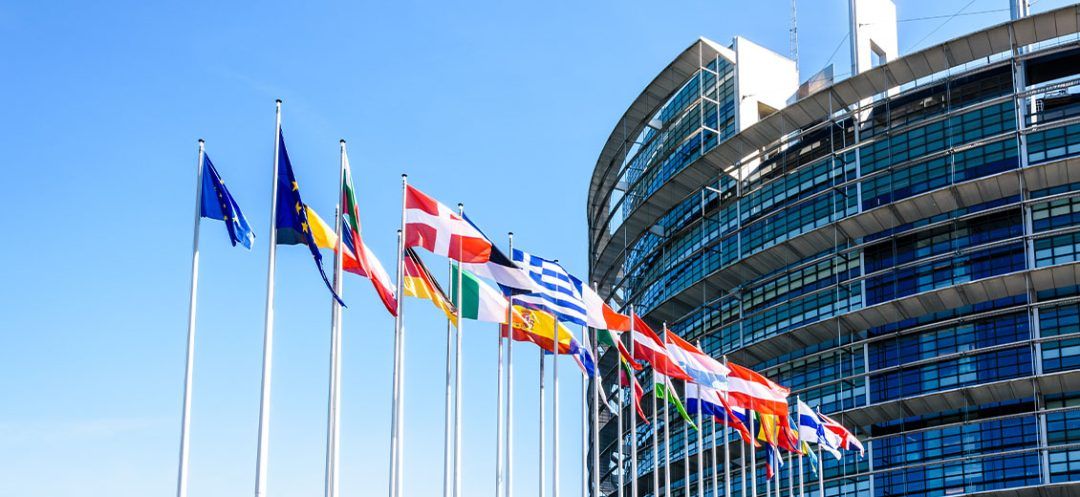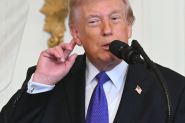- Home
- Middle East
- Transitions

The mere observation of the international scene conveys a perplexing picture regarding both international political stability and domestic political evolutions. The parliamentary elections in France, the late European elections, and the incoming presidential elections in the US are challenging on multiple accounts: the sociology of the political landscapes, the polarization of the political scenes, and their impact on international political alignments. The radioscopy sends contrasting signals about the domestic political alignments, the rise of extremism, and the demise of political moderation and bipartisanship in both Europe and the US, at a time when conflicts are still raging in the Ukraine, the Near East, and the Horn of Africa.
One wonders whether the victory of extremes is likely to endanger the future of the transatlantic alliance, favor the outburst of Russian imperialism, cater to Chinese power politics, and extend a lifeline to rogue states all along various geopolitical spectrums (Iran, Syria, Libya, Venezuela, North Korea, Nicaragua, Cuba…). The firm transatlantic commitments of Jordan Bardella and Giorgia Meloni are quite reassuring since they initiate a new political dynamic whereby the National Rights are repositioning themselves while striving to reinvent the right's new political center, whereas Leftist parties are still hostages to their political extremes. The outcomes of the French parliamentary elections are quite decisive and shall set the tone at the European level.
The political evolutions in the Middle East are highly problematic since the destructive cycle initiated by the Iranian power politics is a corollary to the radicalization of the Islamic regime. The containment of Iranian expansionism and the support of political dissidence are interrelated if democratization and conflict resolution are to take hold in Iran and the region. The interlocking dynamics between the neo-totalitarian drive and its cataclysmic power politics are major sabotaging factors that should be reckoned with. The Iranian surrogate wars conducted by Hamas and Hezbollah should be countered and won ultimately whatever might be the strategic ponderations. The destructive lifecycles of Iranian imperialism should come to an end if the Israeli-Palestinian conflict is to oversee a conclusive peace process. Israelis and Palestinians have to rehabilitate the rich legacy of international agreements and start moving unambiguously in this direction. Obviously, this process is incremental and tentative and behooves a steady shepherding, since ideological extremism is a permanent obstacle that derailed previous undertakings.
Lebanon is the epitome of the interlocking destructive cycles ushered by Iranian imperialism. The domination politics of Lebanese Shiites and Hezbollah have undermined Lebanese statehood, questioned its normative and political rationales, and transformed Lebanon into an operational platform to destabilize the whole region. Lebanon has no chance of extracting itself from the clasp of Iranian imperialism and its Lebanese replicas unless the inner dynamics disintegrate. The recovery of the Lebanese democratic legacy cannot accommodate the questioning of national legitimacy, the stipulations of restricted sovereignty, debased constitutional governance, organized criminality, subversion politics, and international terrorism which perfectly equate with what Shiite domination politics stand for in Lebanon and the region.
The awaited transitions are of critical importance if we are to avoid the pitfalls of unhinged power politics and the rewilding of politics. The outcomes of electoral contests, the steady containment of Russian and Iranian imperialism, the overhaul of the EU and the transatlantic alliance, the stabilization of the Middle East and the resolution of its enduring conflicts, and the reweaving of regional alliances are preliminary stages, if Western democracies are to overcome the strategic challenges, the hazards of protracted conflicts, the endemic geopolitical instability and their incidence on their systemic equilibriums.
Read more



Comments